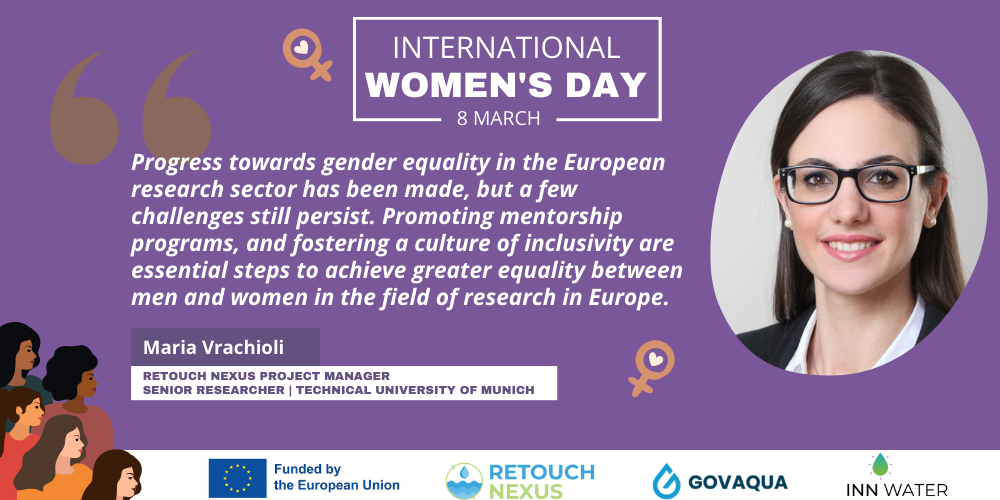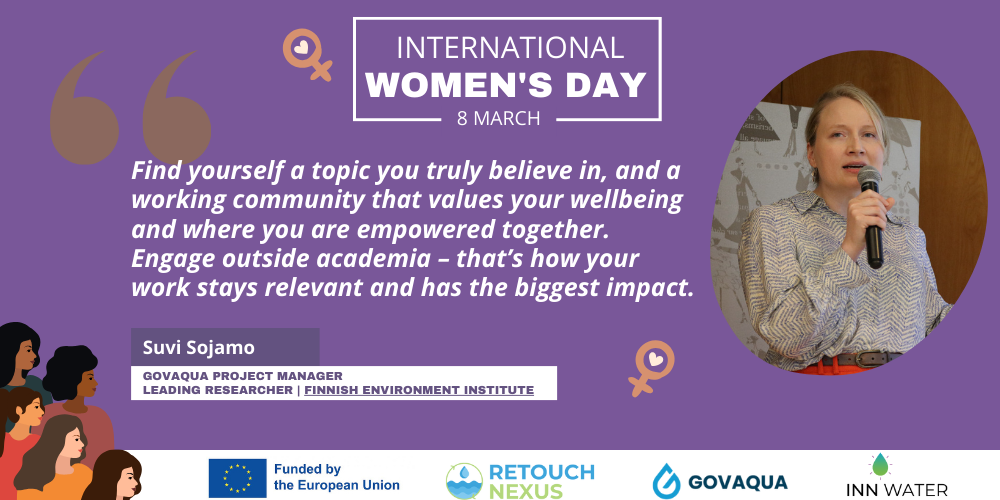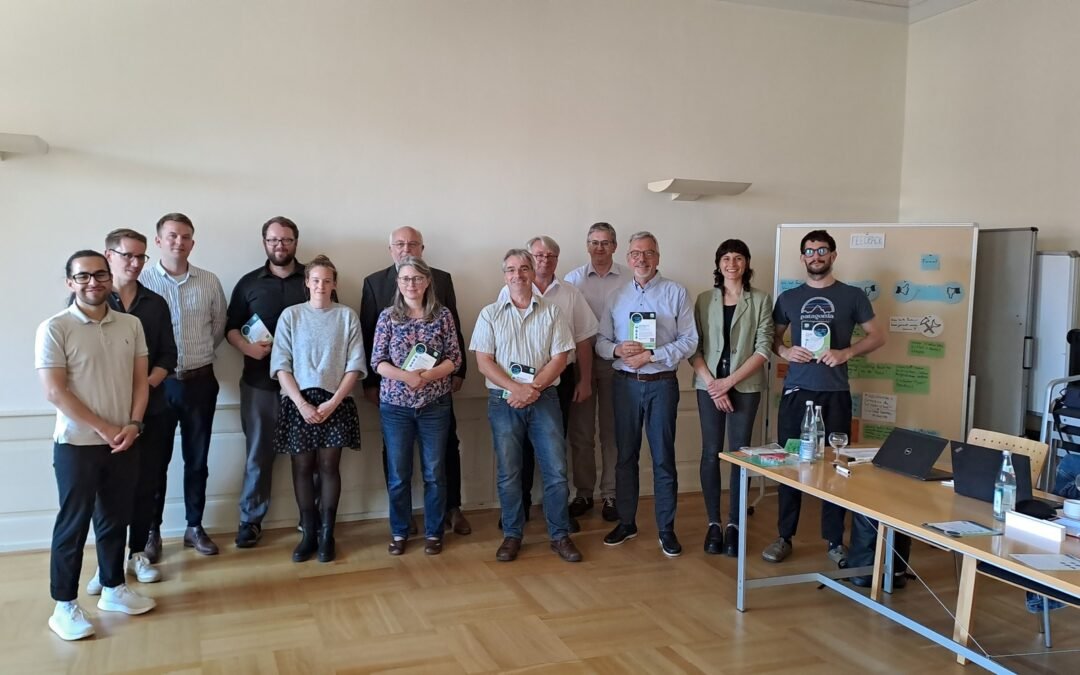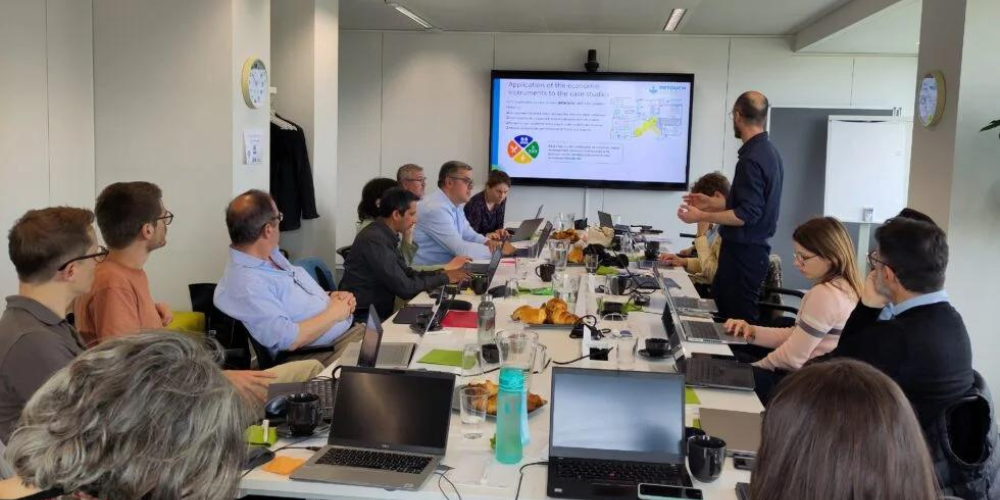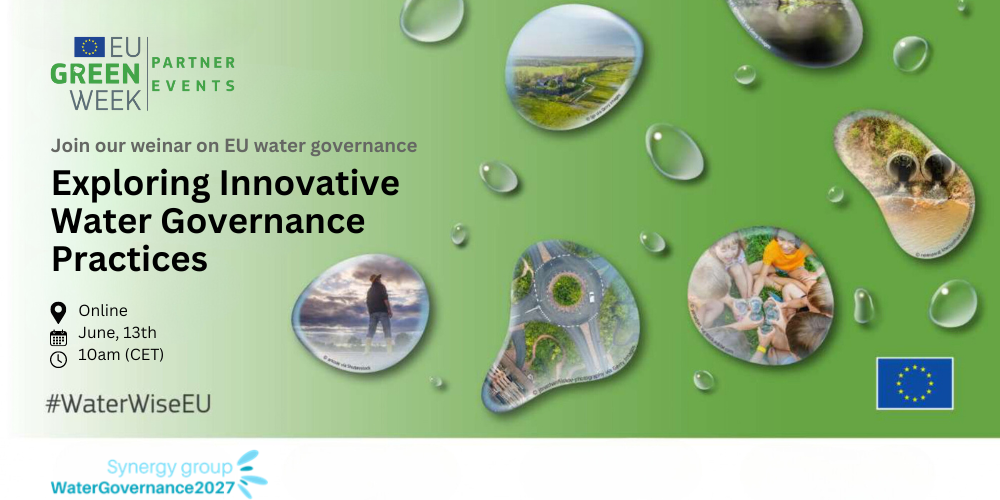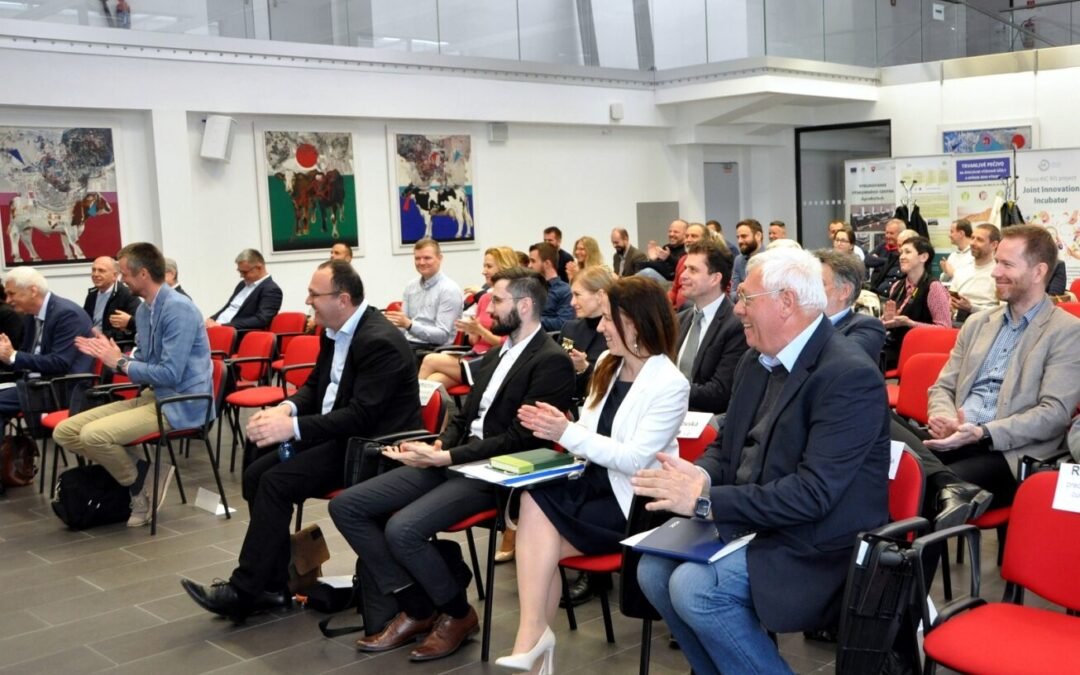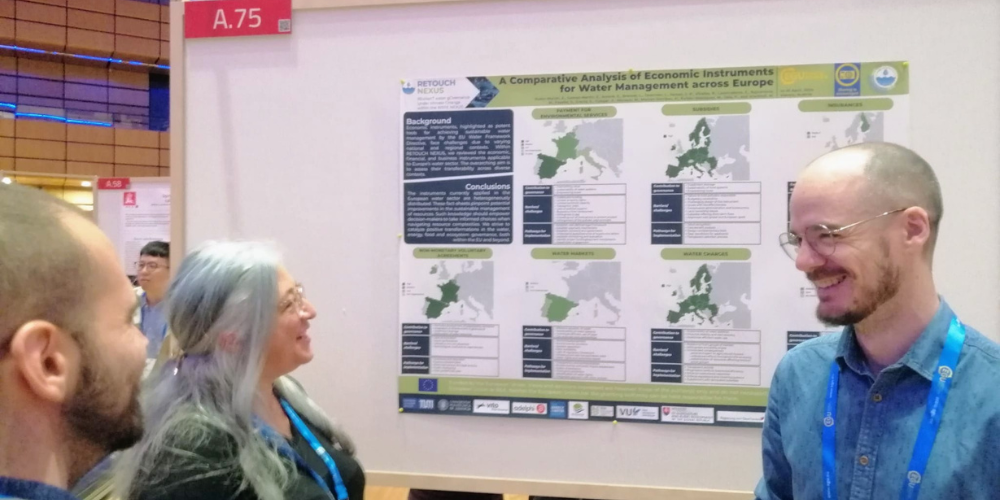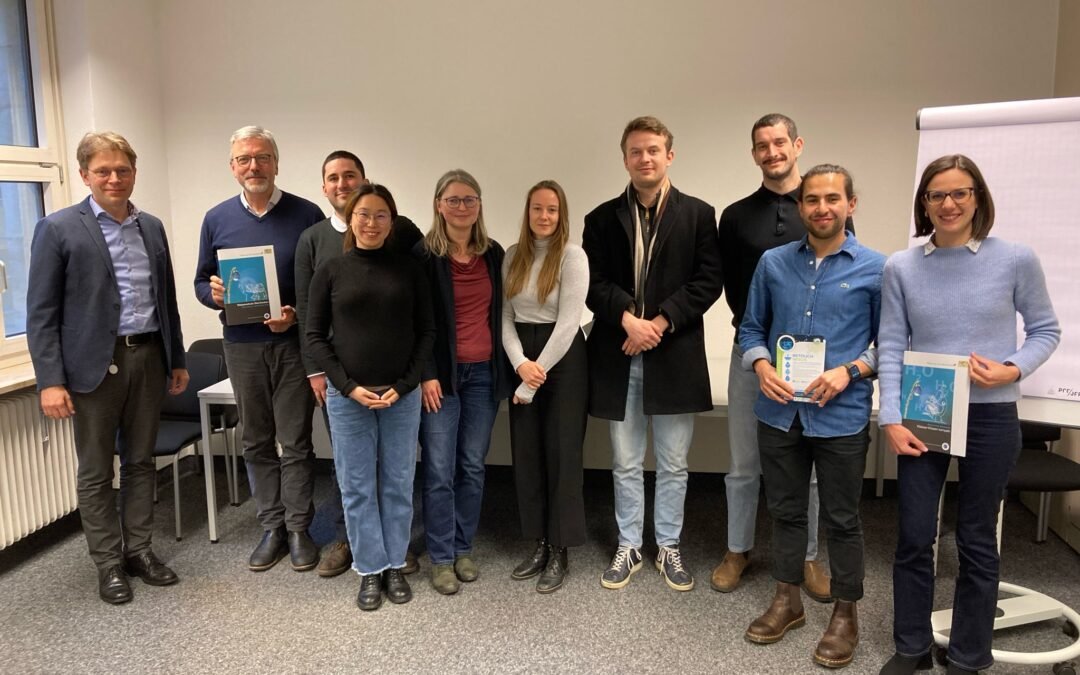Together with our sister projects of the Water Governance 2027 Synergy Group, GOVAQUA and InnWater, we are delighted to dedicate this article to our female researchers to promote their work and careers around the development of water governance approaches.
These innovative approaches take into account the interdependencies between the UN Sustainable Development Goals (SDGs) and the design of coherent water governance practices and policies at different levels and in different sectors.
As part of RETOUCH NEXUS, we interviewed Ms Maria Vrachioli, PhD, Senior Researcher at the Technical University of Munich (Campus Weihenstephan), chair of Agricultural Production and Resource Economics.
Career and challenges
Q.: Ms Vrachioli, can you tell us about your journey to becoming a researcher, the challenges you encountered along the way and the most important lesson you learned?
Ms Vrachioli: Securing funding, overcoming underrepresentation and balancing work-life challenges marked my journey as a female economist in academia. I learned that perseverance is crucial despite setbacks. Collaborating and seeking mentorship strengthened me and helped me to enrich my academic path and contributions to the field.
Role in the project
Q.: What do you do within the RETOUCH NEXUS project? How have your studies and expertise enabled you to fulfil this role?
Ms Vrachioli: Except for coordinating and managing the RETOUCH NEXUS project activities, I am also actively involved in the monitoring and economic modelling tasks of the project. Using the analytical skills from my studies, I can ensure the alignment of the project’s activities. This enables me to effectively navigate through the project’s complexities. In addition, my background in applied economics contributes to actively participate in the research related tasks and offer my insights into the project’s impact towards sustainable and resilient water governance.
Europe
Q.: At European level, do you think the research sector has become more open to women? What could be done to achieve greater equality between men and women in this field?
Ms Vrachioli: Progress towards gender equality in the European research sector has been made, but a few challenges still persist. Promoting mentorship programs, and fostering a culture of inclusivity are essential steps to achieve greater equality between men and women in the field of research in Europe.
Q.: As an expert in sustainable water governance, what do you see as Europe’s greatest challenge in implementing sustainable water governance?
Ms Vrachioli: Europe’s main challenge in sustainable water governance is finding a balance among different needs from different users. This involves dealing with cross-sectoral water governance aspects while considering issues, such as water scarcity, pollution, and climate change impacts. It’s crucial to ensure manage water resources sustainably, considering the water-energy-food-ecosystems Nexus dynamics. Cooperation between countries and different levels of government is also vital.
Q.: Finally, what advice would you give to future generations of women who want to become researchers?
“Break barriers, pursue knowledge,
pave the path for future water research.”
Ms Vrachioli
Read other interviews with the researchers:
The German case study of the RETOUCH NEXUS project held its First stakeholder engagement in Upper Main!
Our German case study leader, the Technical University of Munich was thrilled to kick off its First stakeholder engagement workshop…
4th General Assembly meeting: time to explore the Water Experience Container
The RETOUCH NEXUS project took the opportunity to regroup for its 4th General Assembly meeting during the Water Innovation Europe…
Throwback on our webinar on innovative water governance practices from current European projects
Unlock the Future of Water Resilience Missed our immersive online workshop on “Cutting-edge water governance for water resilience", which took…
NexusNet Regional Stakeholders Forum on “Resource Recovery and Reuse in the Water-Energy-Food Nexus for a Low-Carbon Economy”
Exploring Sustainable Solutions 2nd Regional Stakeholders Forum on Resource Recovery and Reuse On May 14, our coordinator Maria Vrachioli (from…
The Slovak case study of the RETOUCH NEXUS project held its first stakeholder workshop on climate-resilient water management for agriculture, citizens and ecosystems!
After several months of preparation, our Slovak case study leader, the Slovak University of Agriculture (SUA) in Nitra, was thrilled…
EGU24 – General Assembly: Water resources policy and management – System solutions for uncertain futures!
The RETOUCH NEXUS project is proud to attend this year #EGU24 General Assembly organised by the European Geosciences Union (EGU)…
World Water Day 2024: let’s celebrate Water for Peace!
Come celebrate World Water Day 2024 ‘Leveraging water for peace’ with the RETOUCH NEXUS project! Water can be a tool…
Check out your mail: RETOUCH NEXUS bi-annual newsletter is now out!
Are you passionate about sustainable water management and governance? 🌍💧 Subscribe to our newsletter and stay updated with the latest…
RETOUCH NEXUS project coordinator (TUM) visits German Case Study in Bayreuth
On 22 February 2024, a delegation from TUM visited representatives from the German Upper Main government. During the meeting, the…
Let’s meet around breaksfast to discover the Maltese case study!
The Energy and Water Agency (EWA) recently launched the stakeholder engagement process for the RETOUCH Nexus project with a successful…

